05 Nephron Physiology
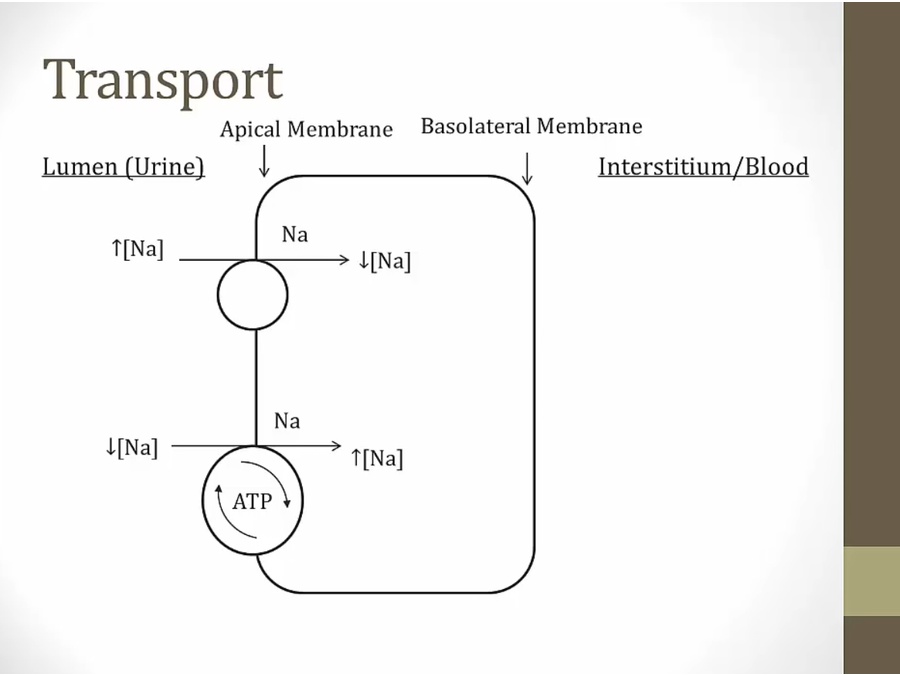
- high to low concentration: no energy needed
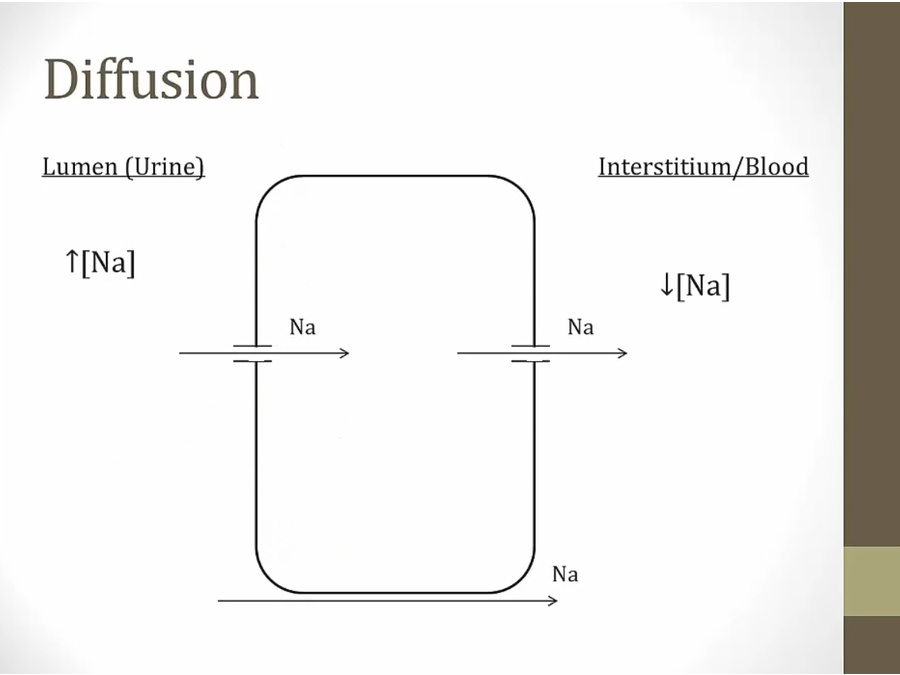
- paracellular: between cells
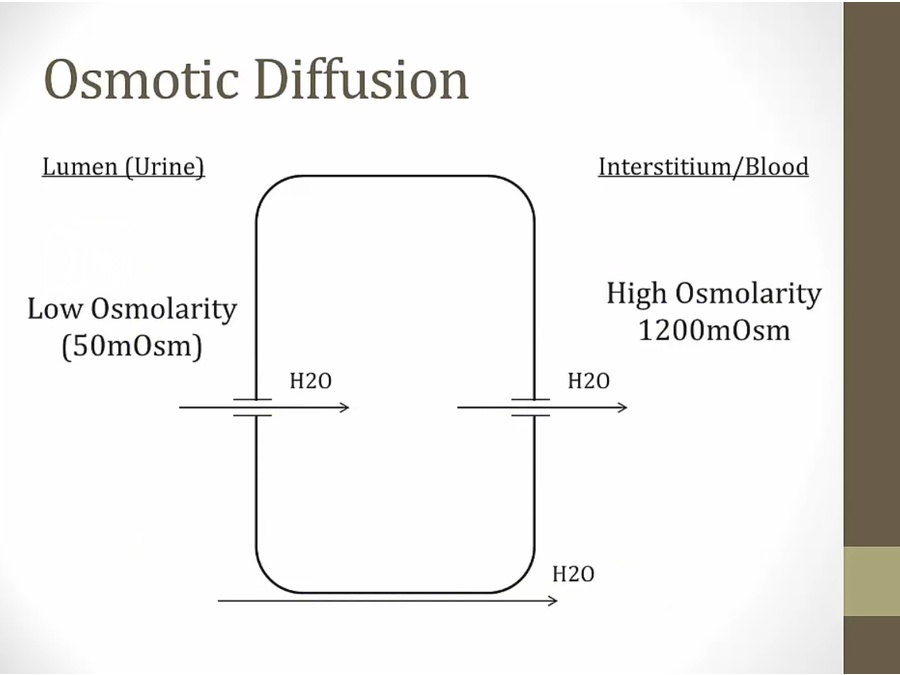
- osm: how much solute dissolved in water
- low osm: high concentration of water, vice versa
- water move from high concentration to low concentration
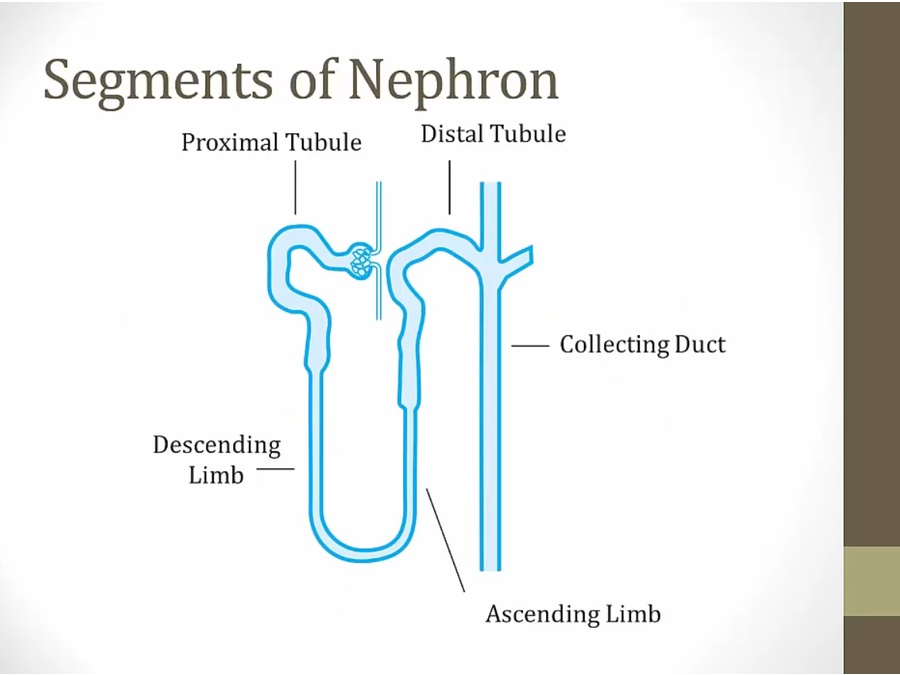
PCT
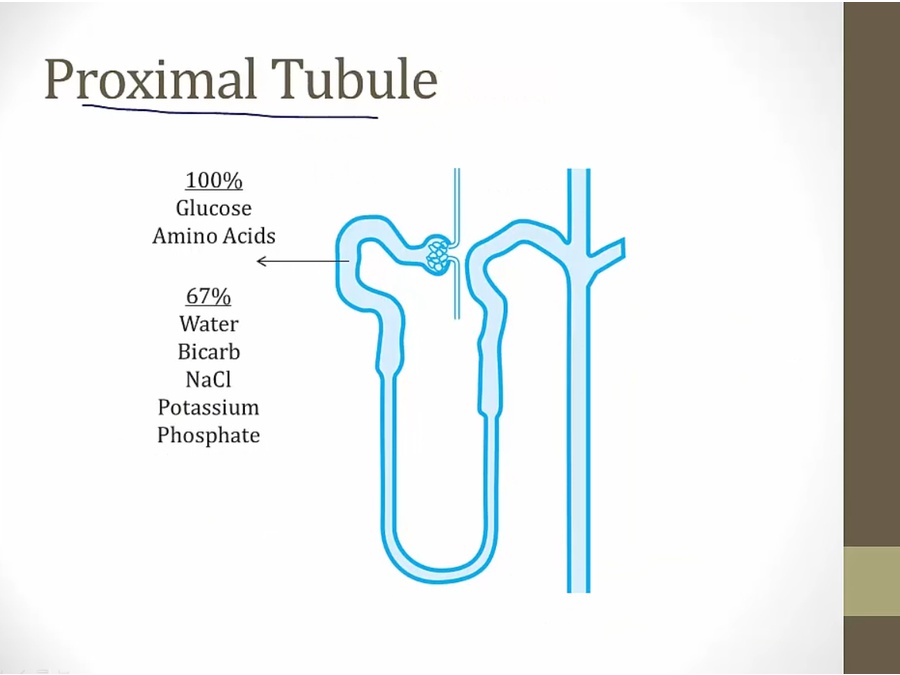
- work horse of nephron
- most absorption
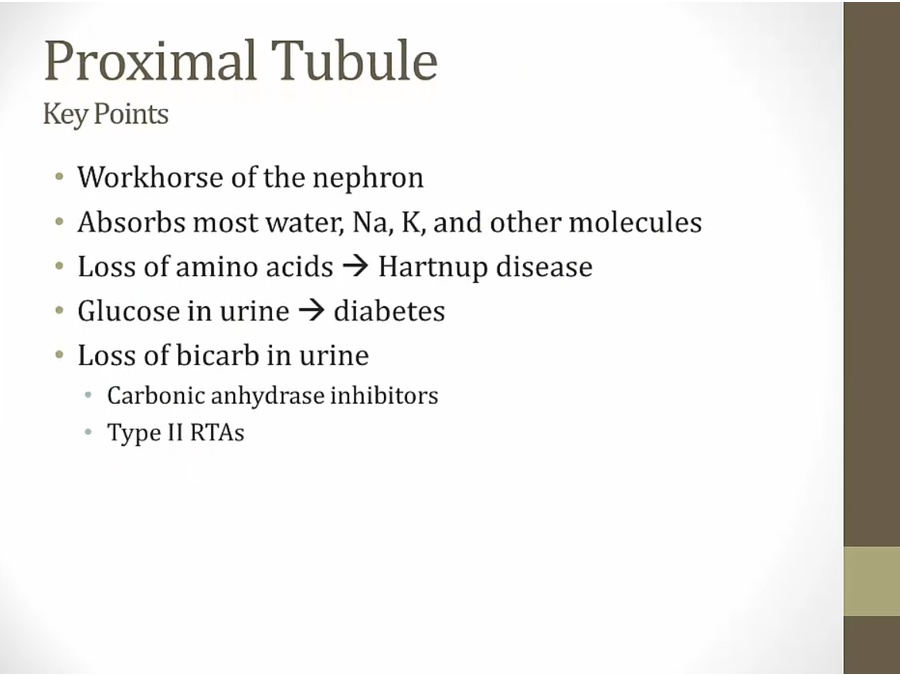
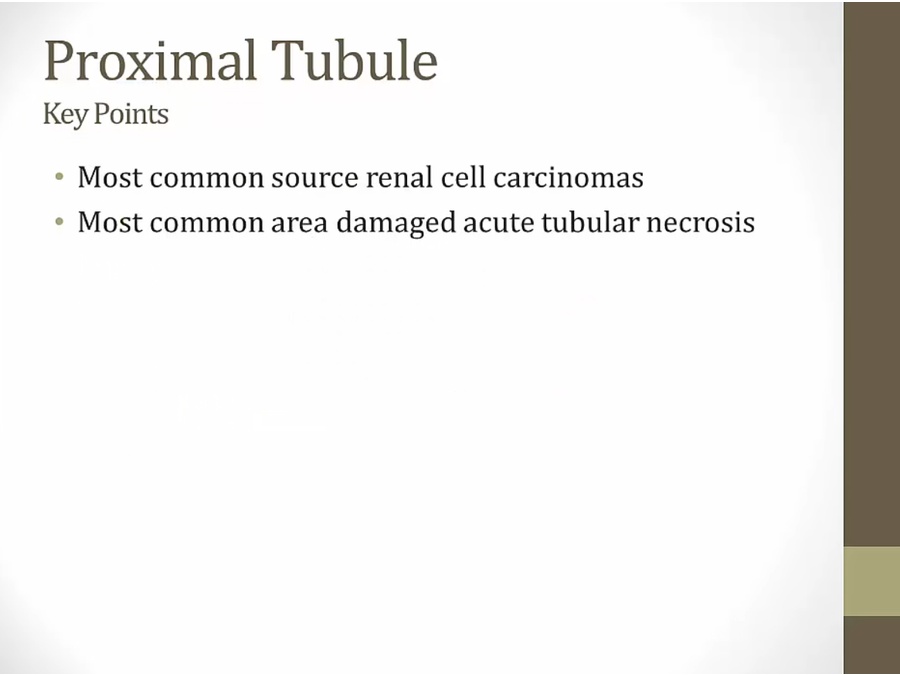
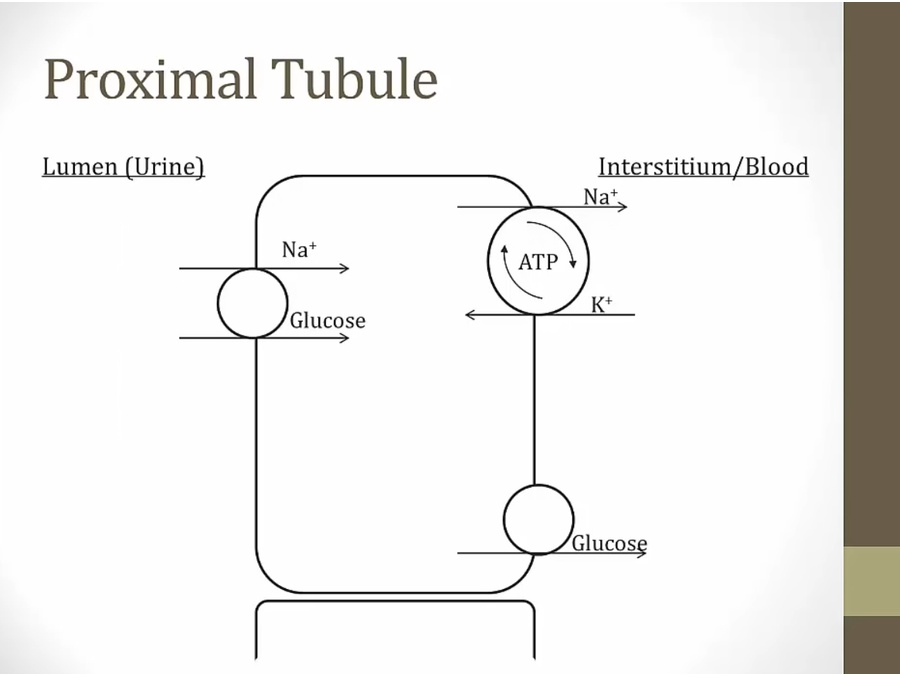
- use concentration of Na to drag glucose in
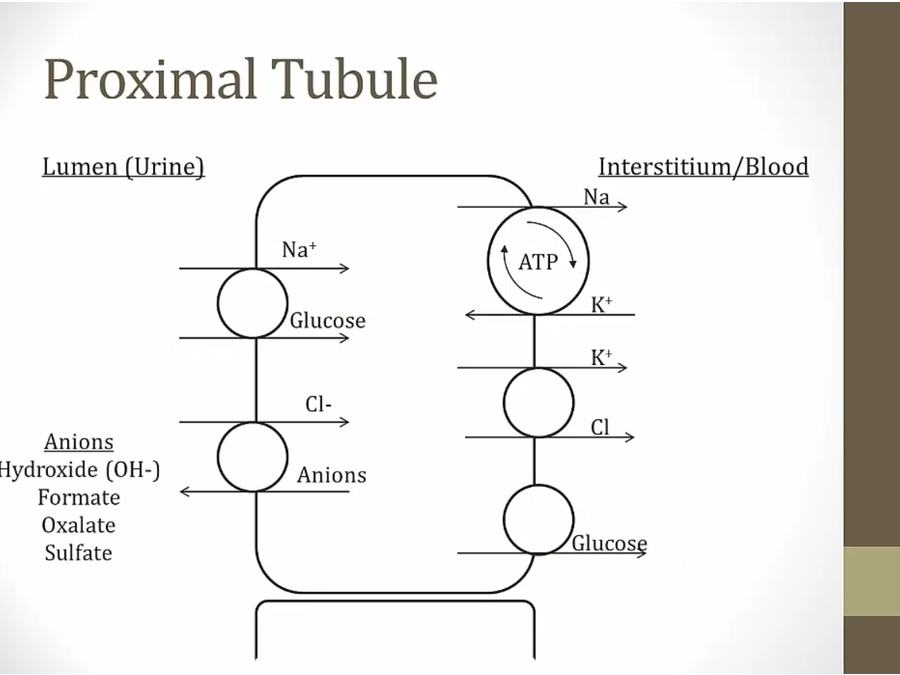
- K pump into cell, diffuse out and drag Cl with it, lower Cl concentration in cell
- Cl can then be pulled into cell in exchange for anion
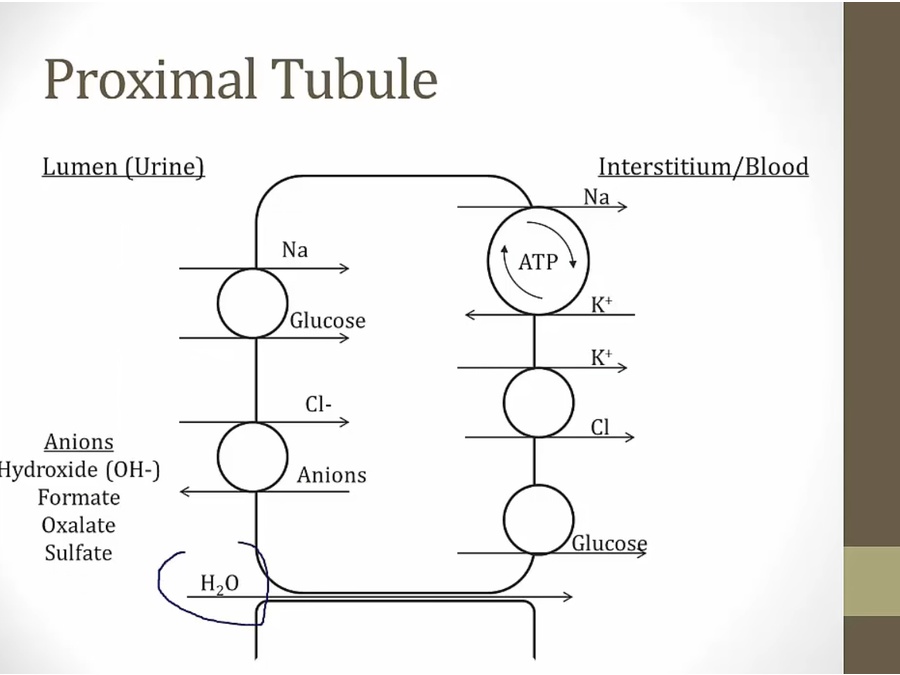
- water reabsorbed paracellularly via high Na/Cl concentration in blood
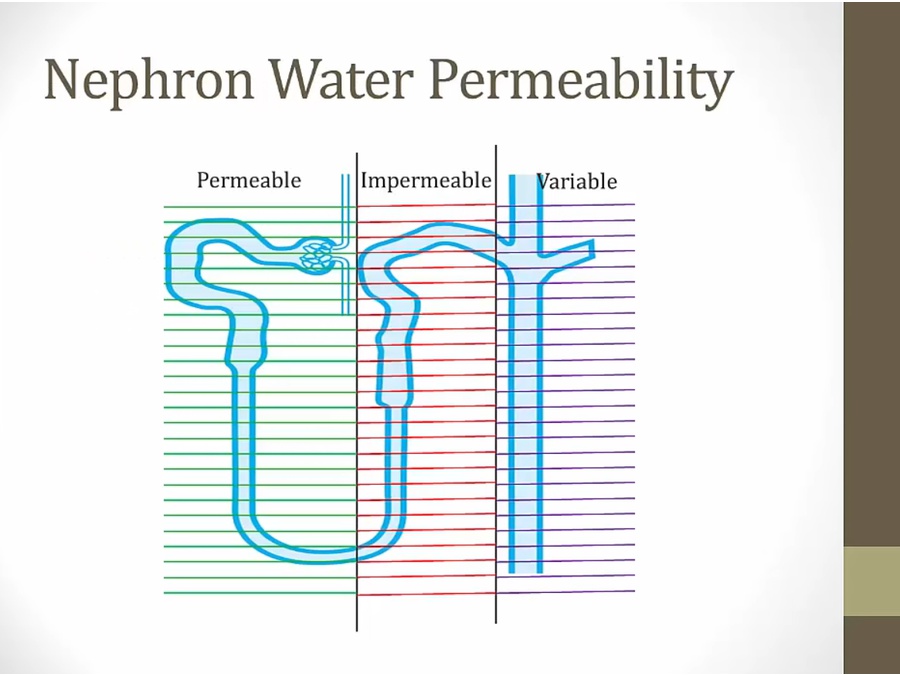
Glucose Clearance
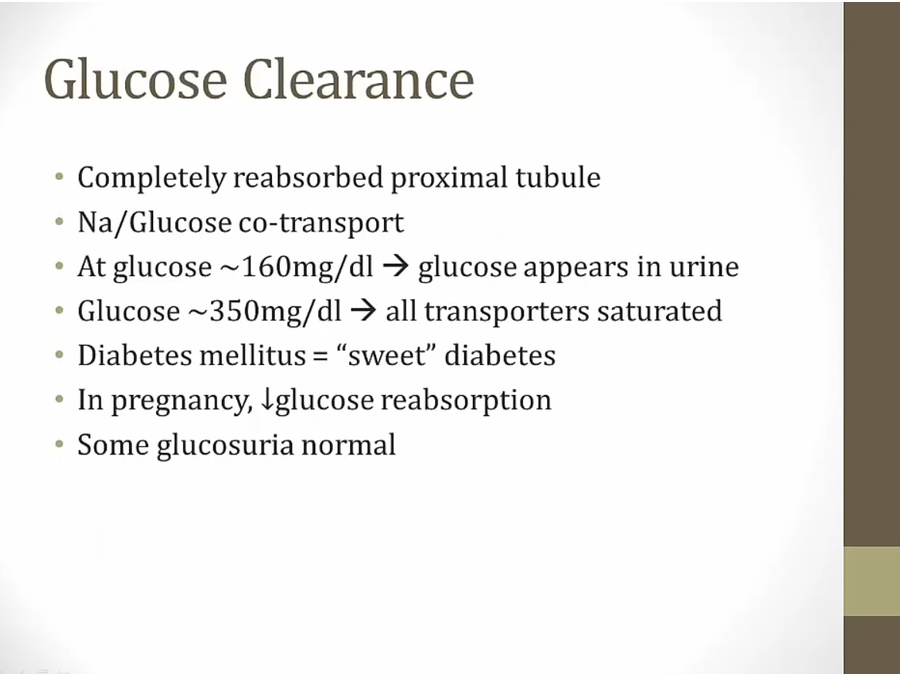
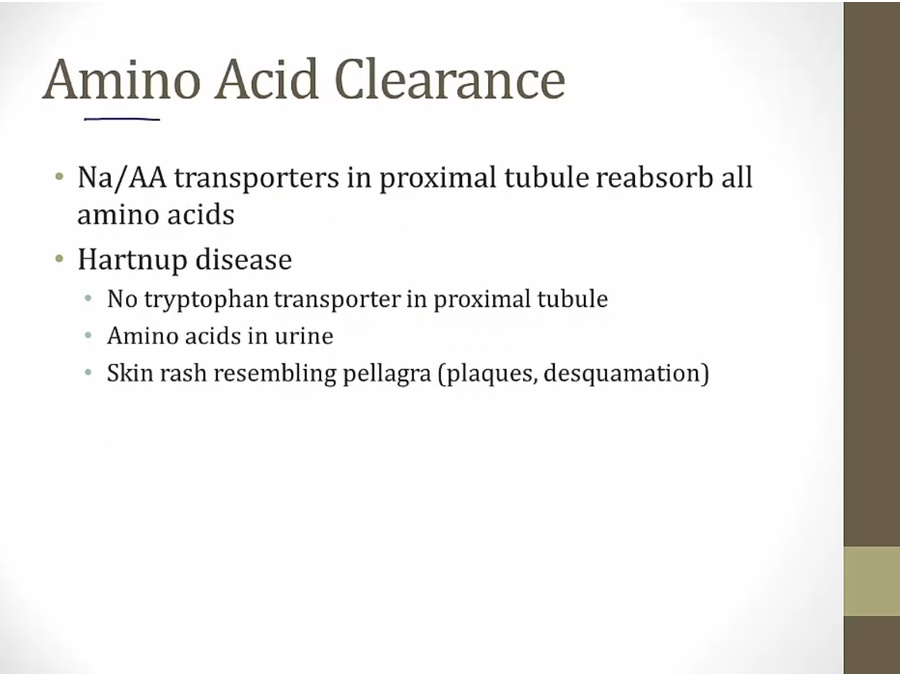
- pellagra: B3 deficiency (niacin). Tryp converted to niacin
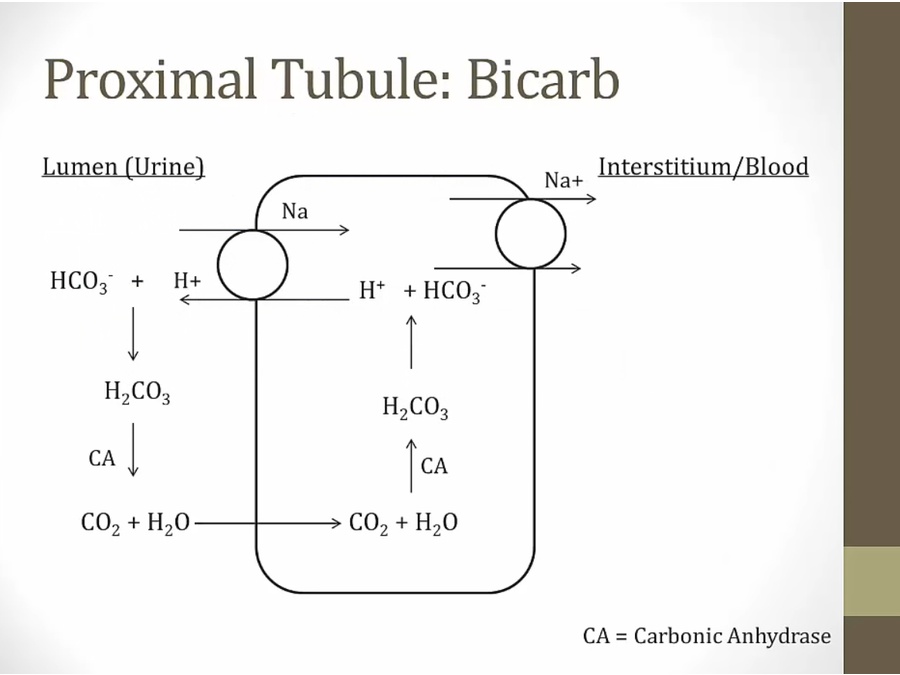
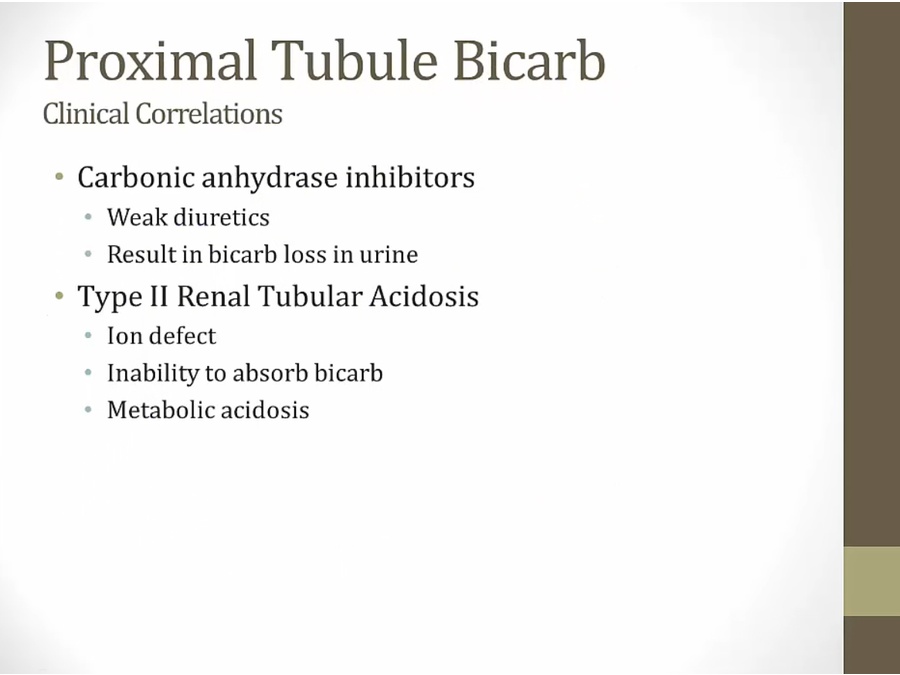
Fanconi
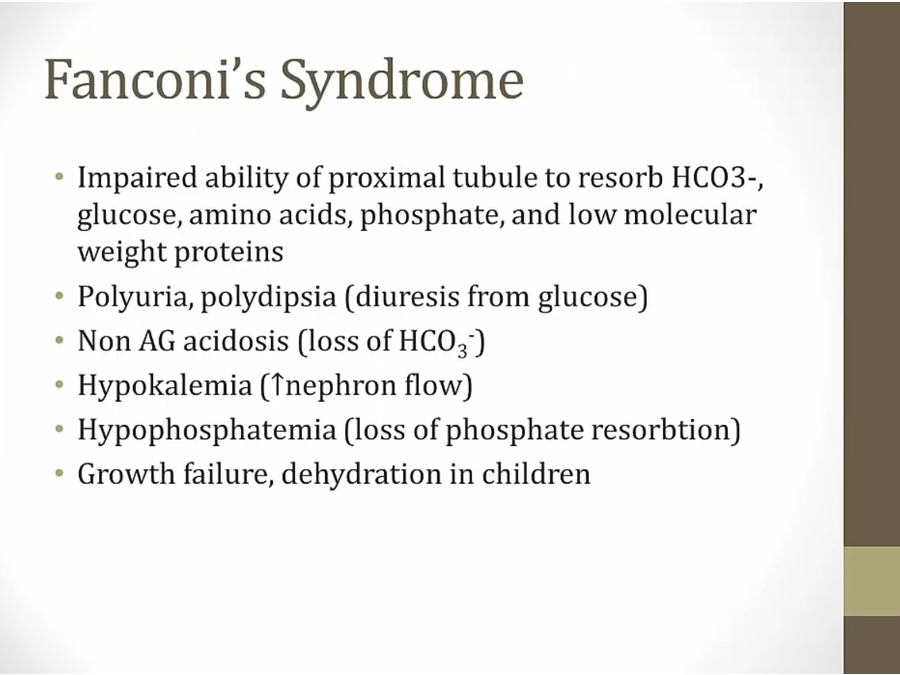
- proximal tubule disfunctional
- phosphate leads to growth failure
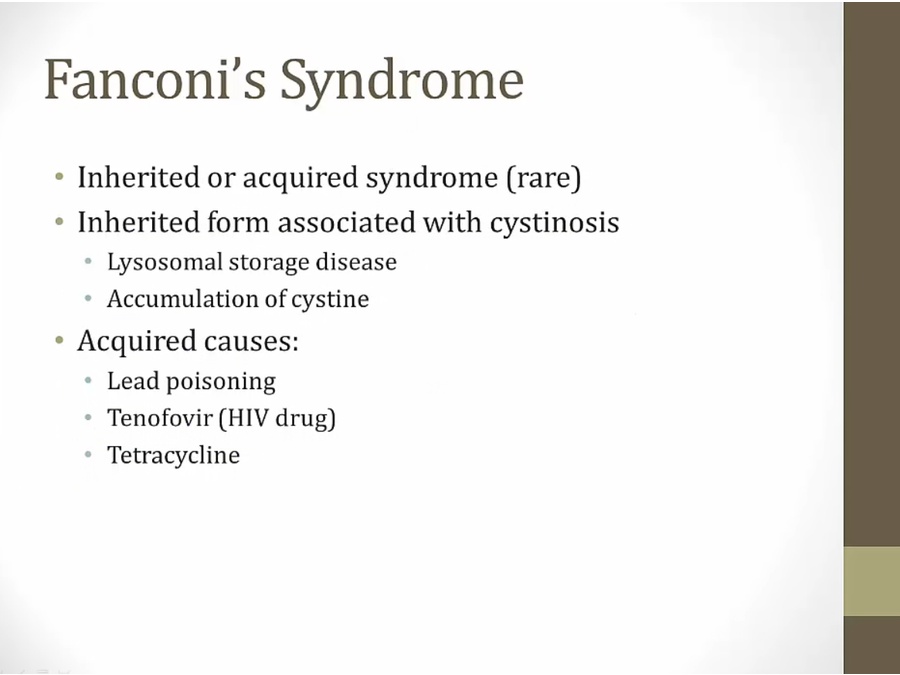
Descending Loop
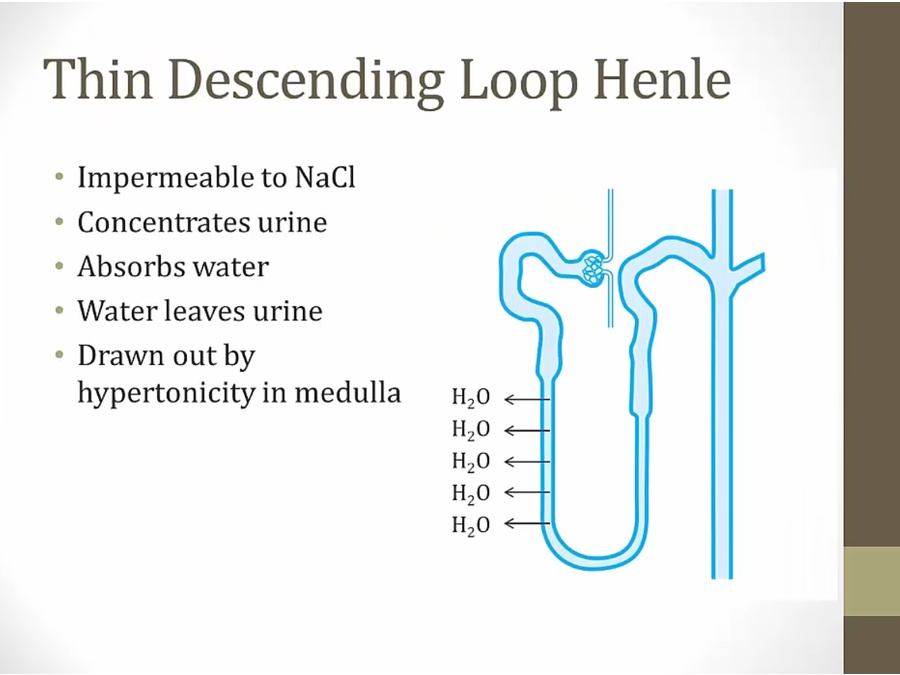

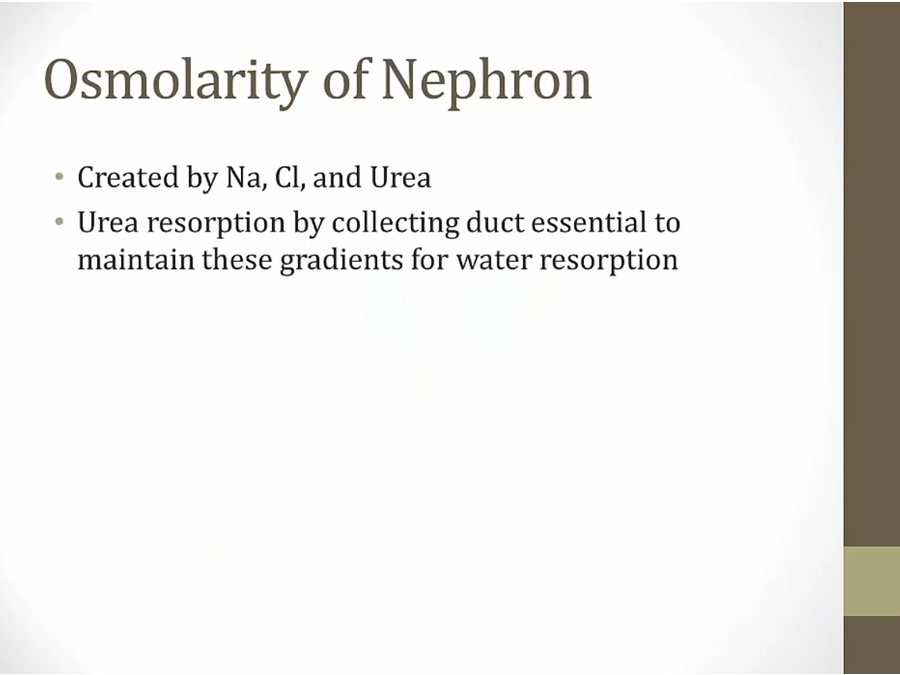
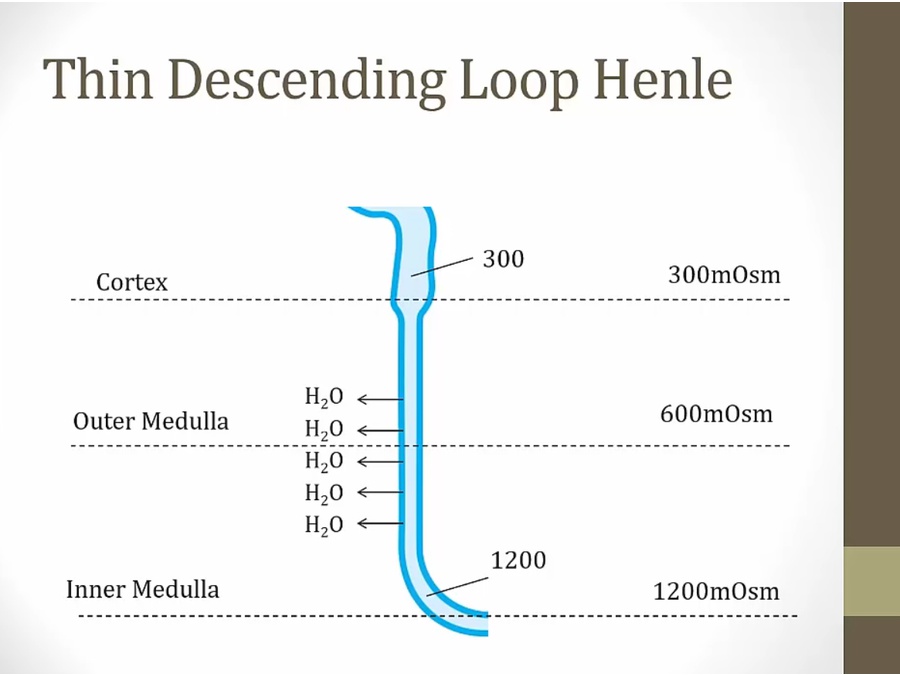
- Cortex: water drawn out until lumen = 300
- medulla: continue drawn out
Ascending Limb
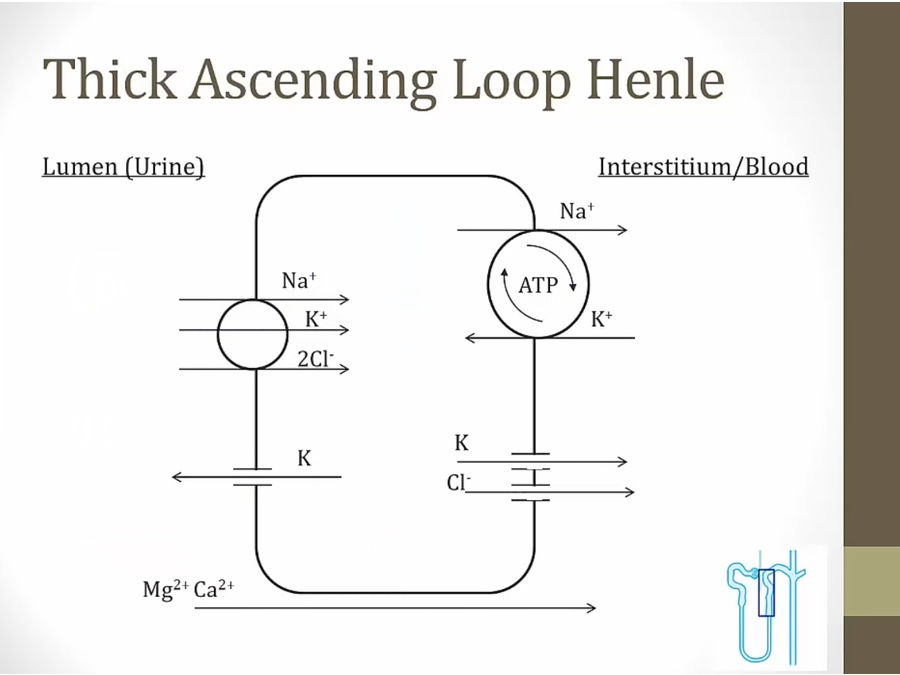
- K leak into lumen, cause + charge and push cation in
- NKCC: Na, K, Cl, Cl

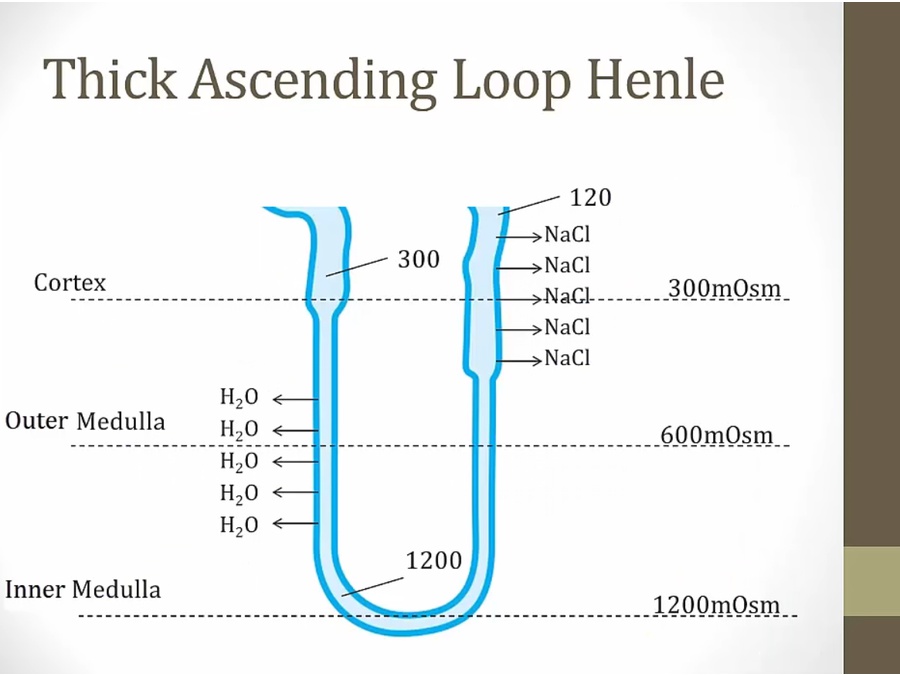
- NaCl pulled out, leave water in, very dilute urine
- impermeable to water

Distal
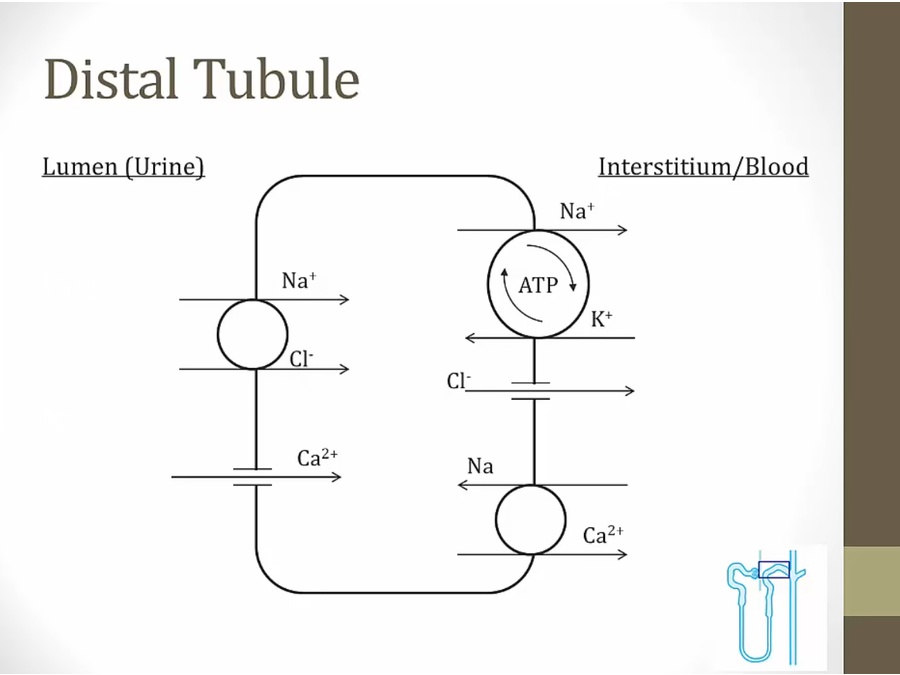
- PTH and thiazide diuretics increase Ca absorption

CD
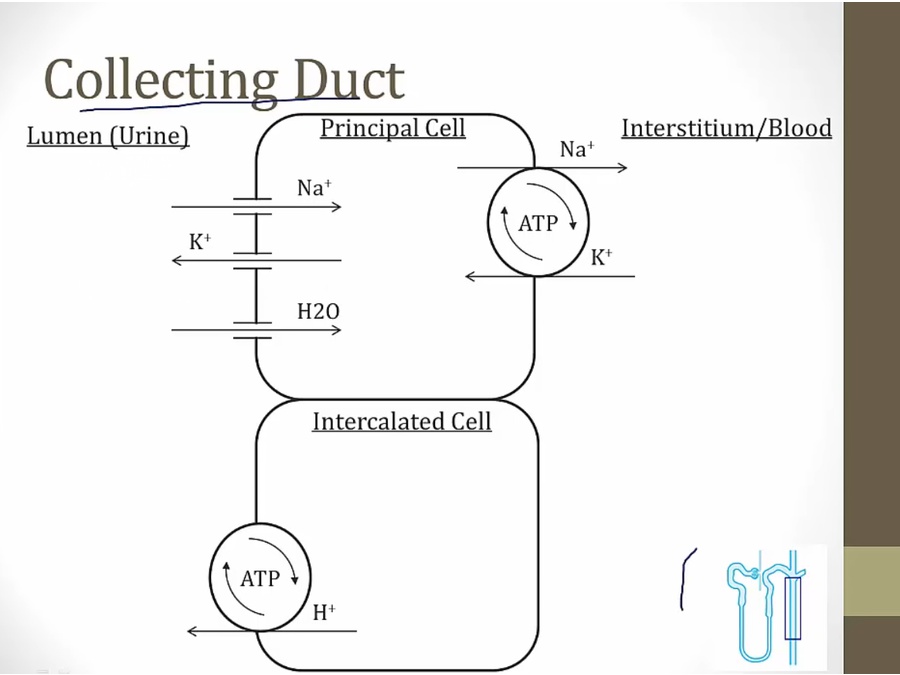

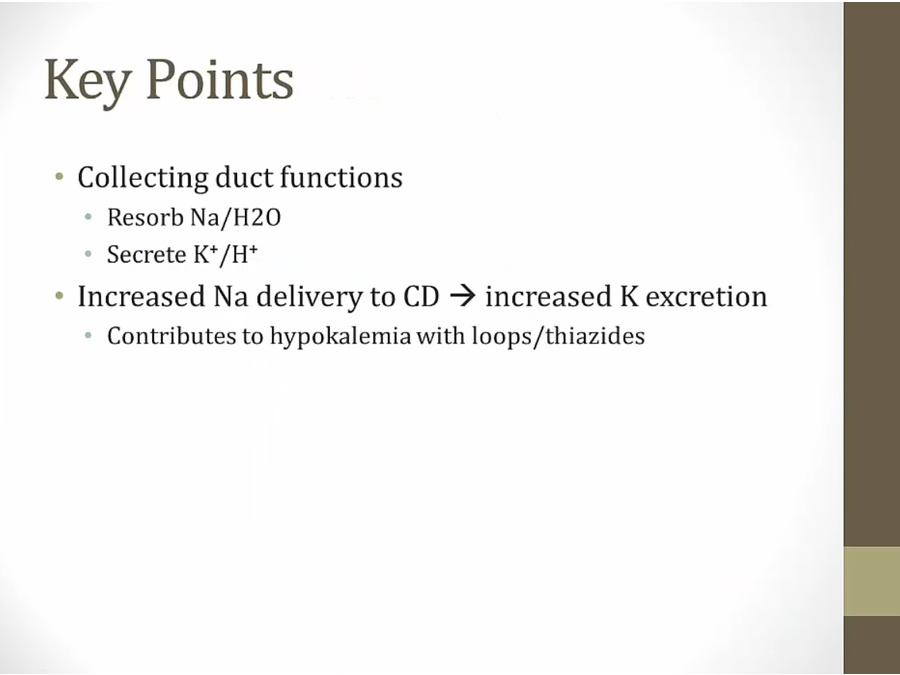
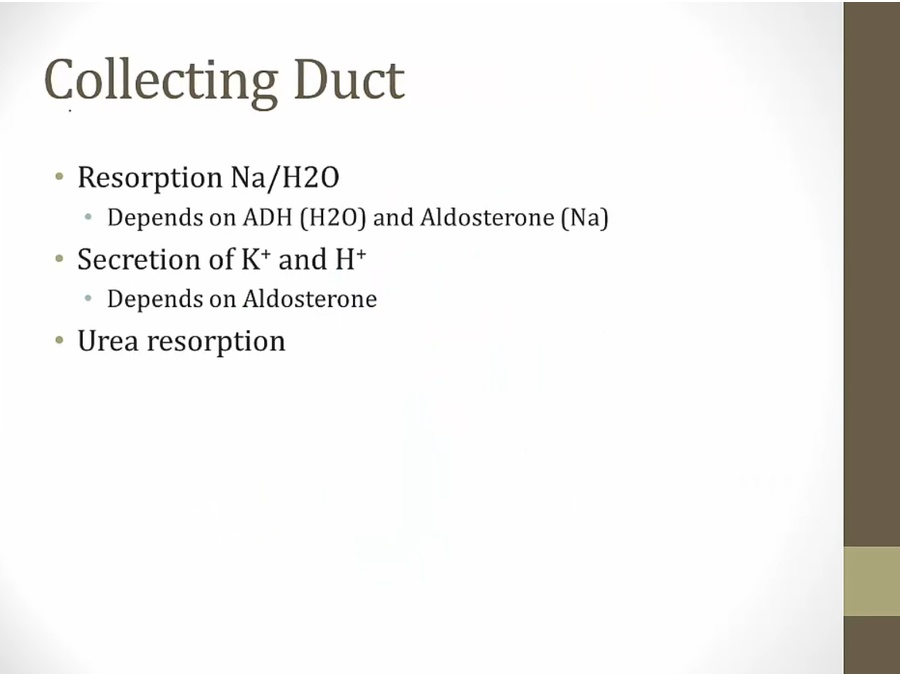
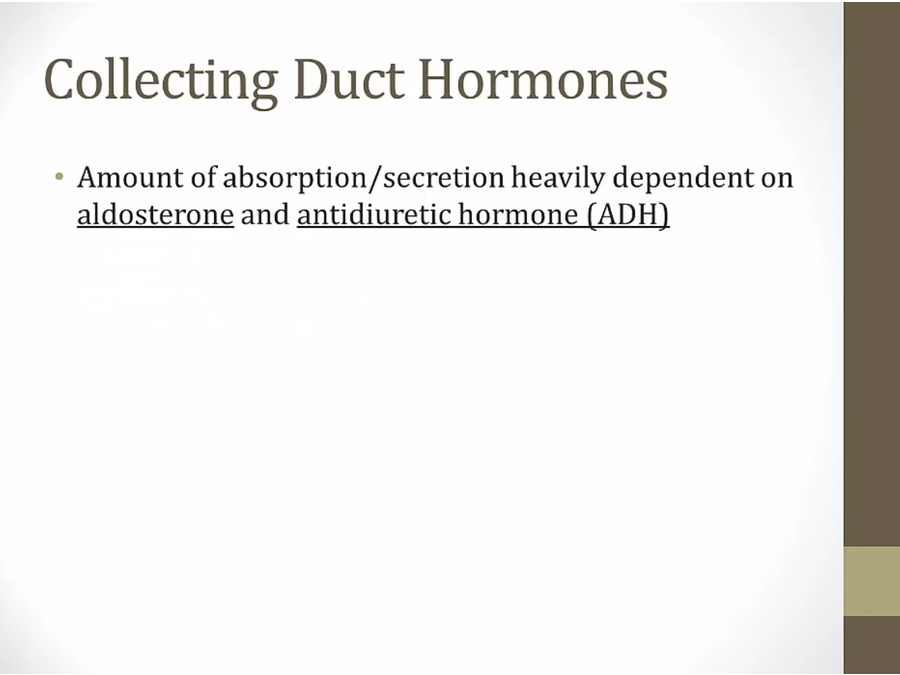
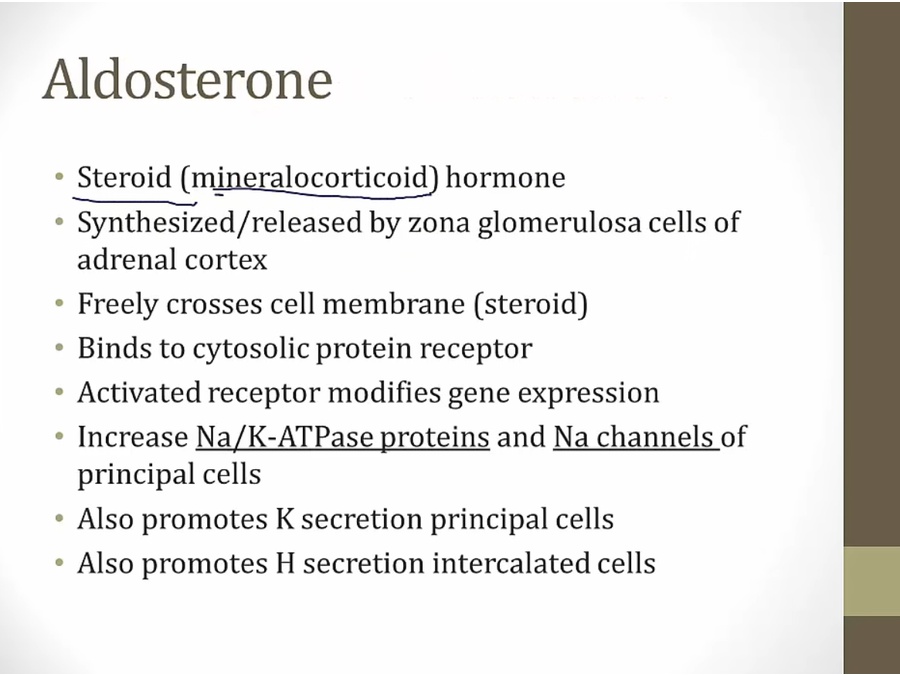
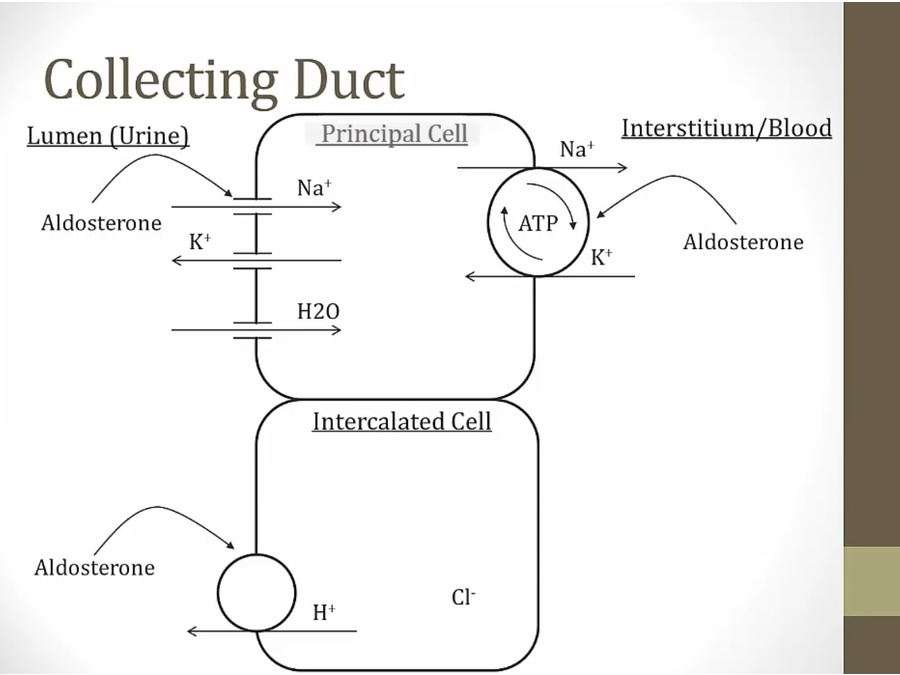
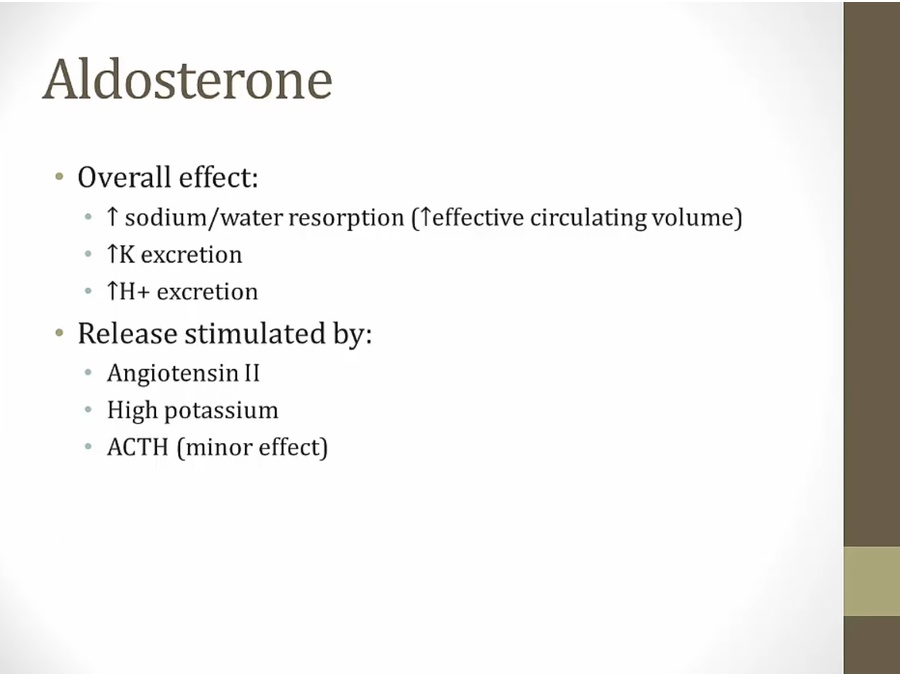
ADH
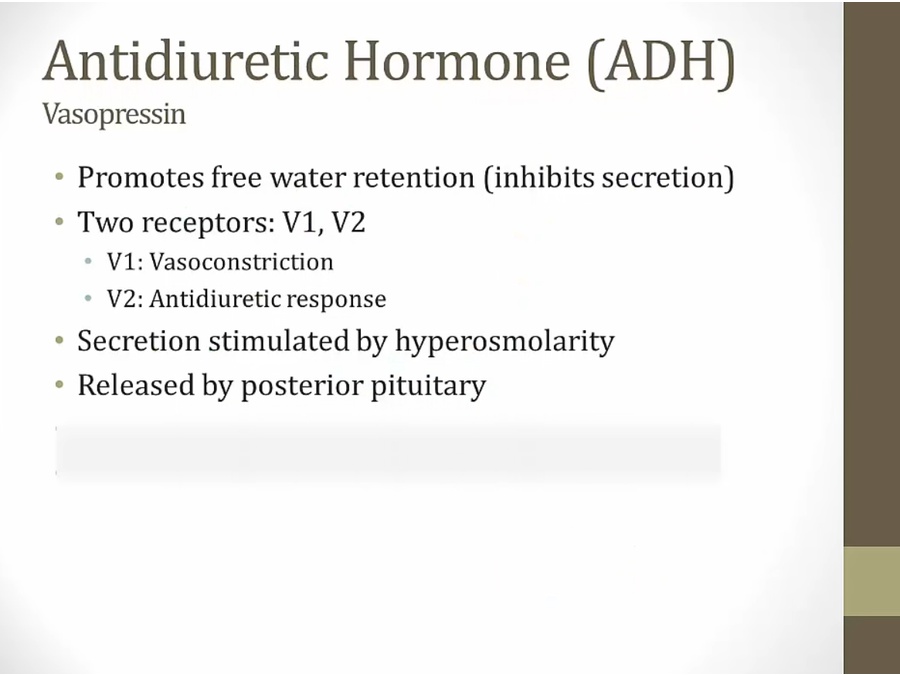
- vasopressin: vasoconstriction
- supraoptic/paraventricular
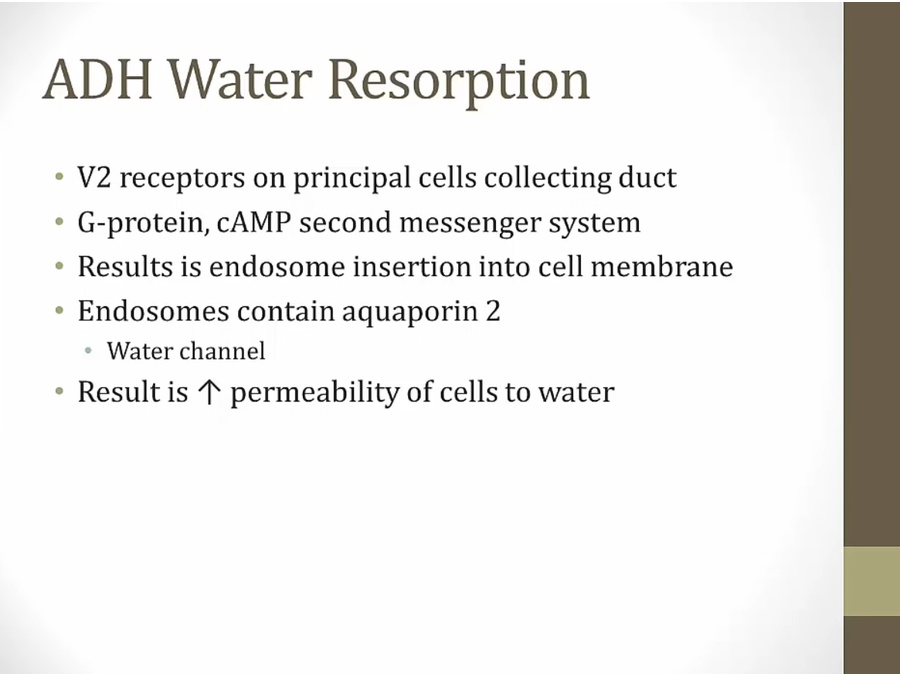
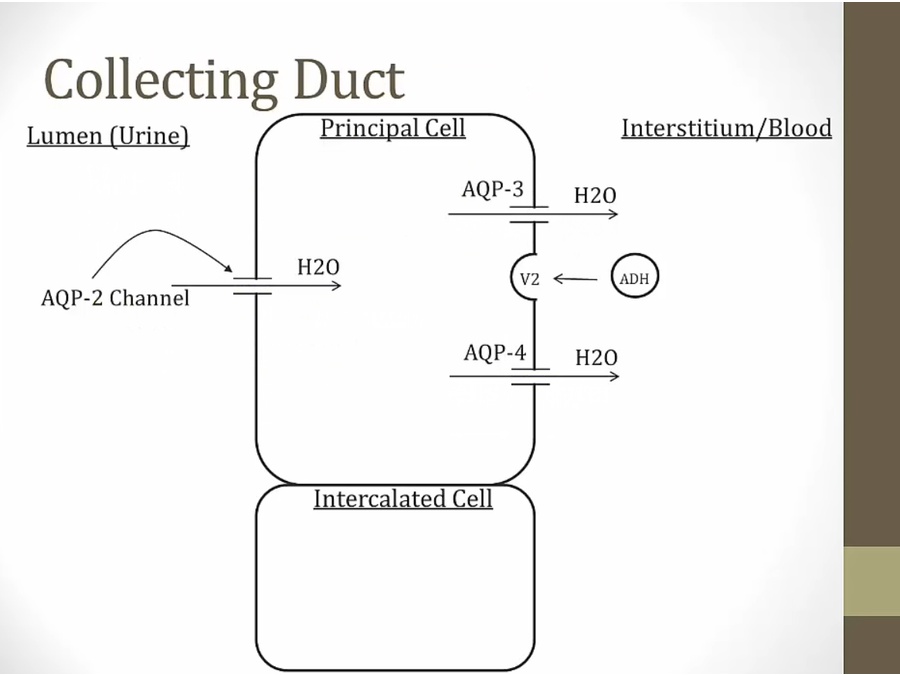
- AQP 3 and 4 always present: basolateral always permeable to water
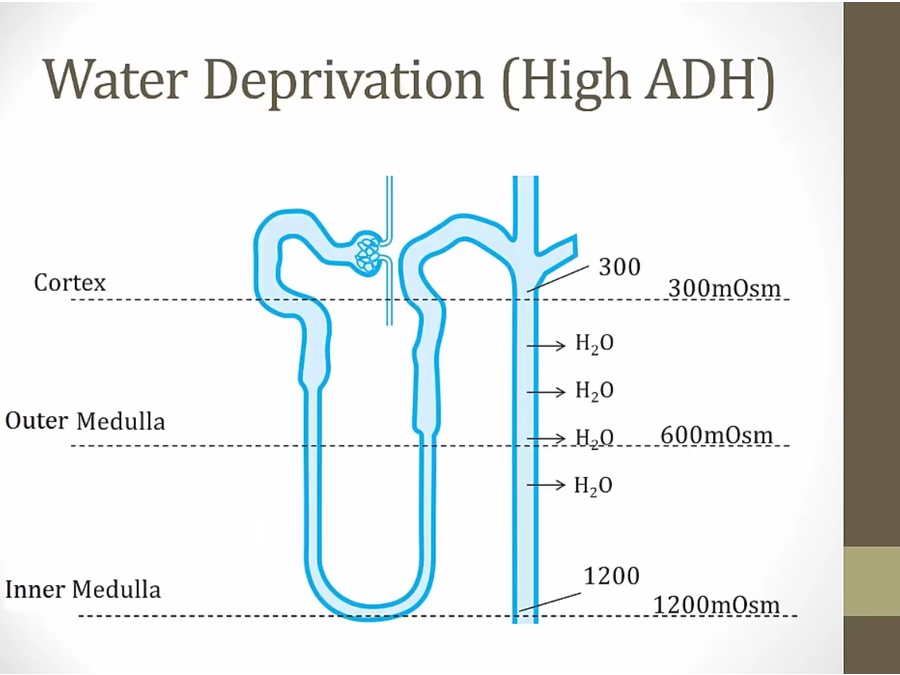
- water deprived: concentrate urine by pulling it out
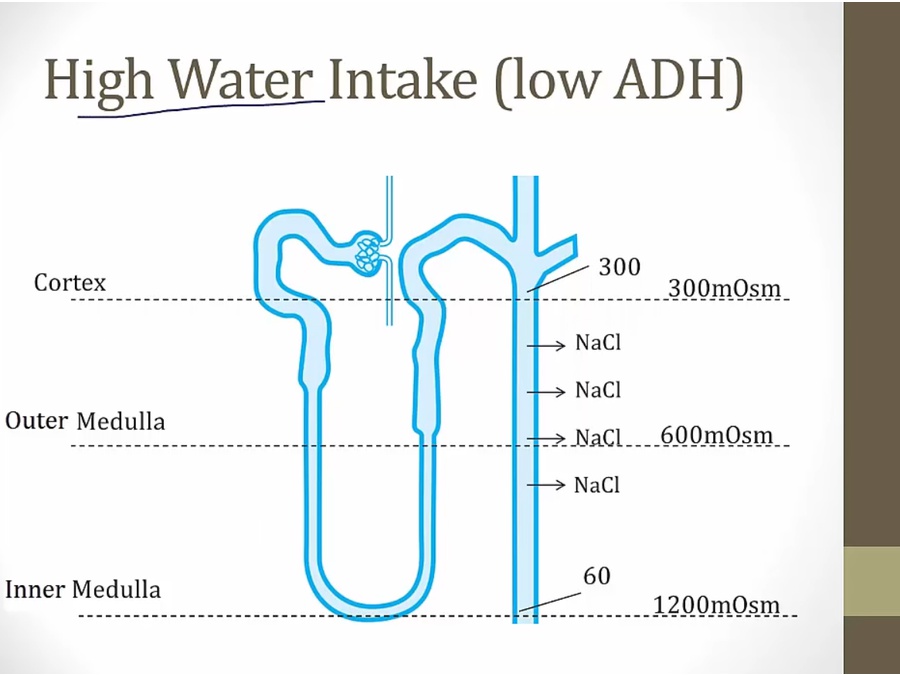
- water not absorbed, NaCl absorption dilute urine
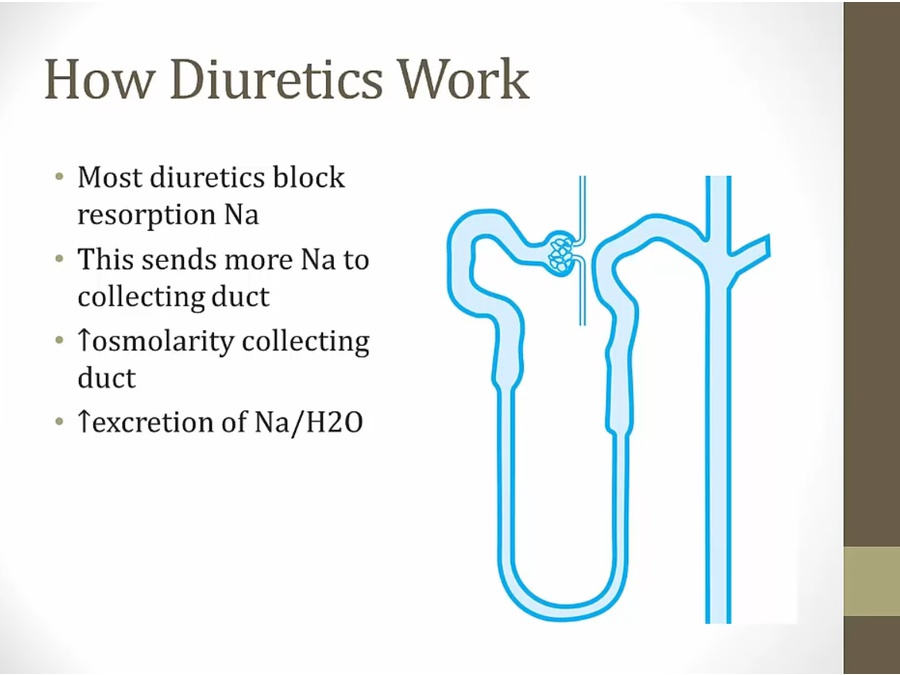
- high osmolarity in lumen at CD: less water leaving
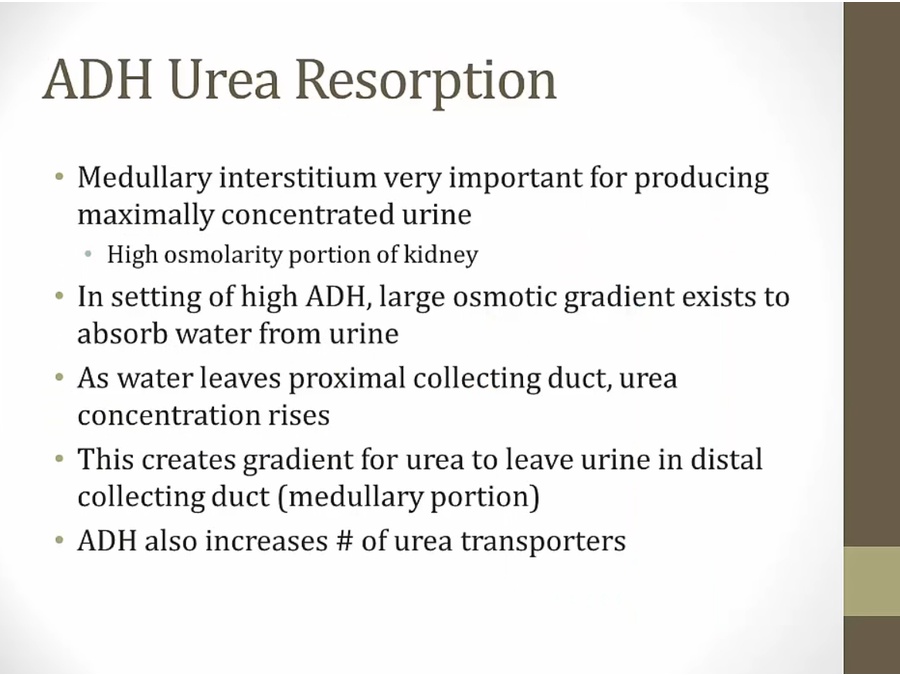
- water leaving causes urea in lumen to be more concentrated: urea leaves via gradient
- ADH promotes absorption of urea
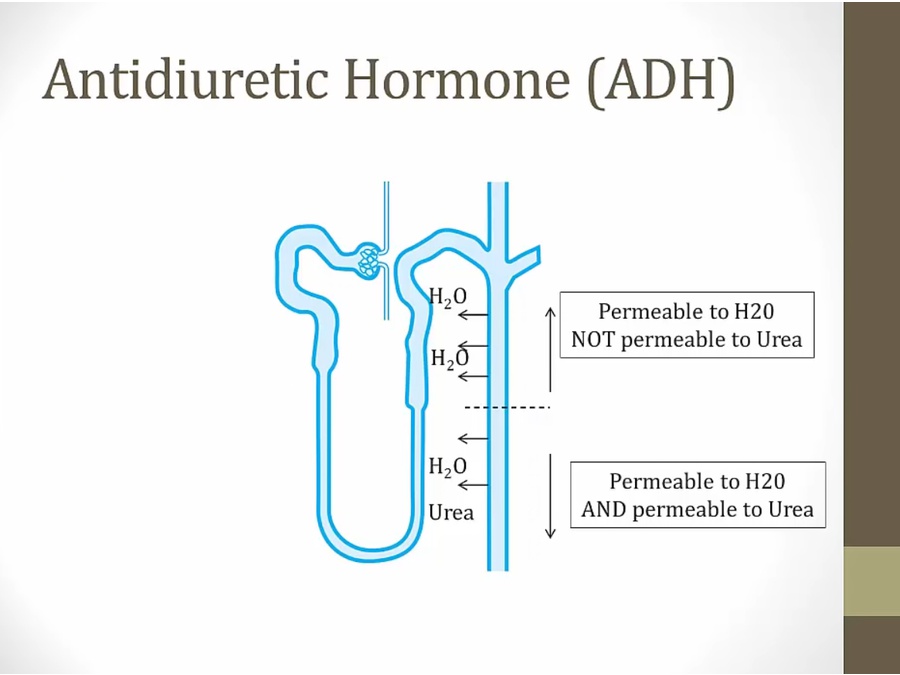
- urea pushed out in distal CD
- urea needed in descending loop to draw water out
Misc
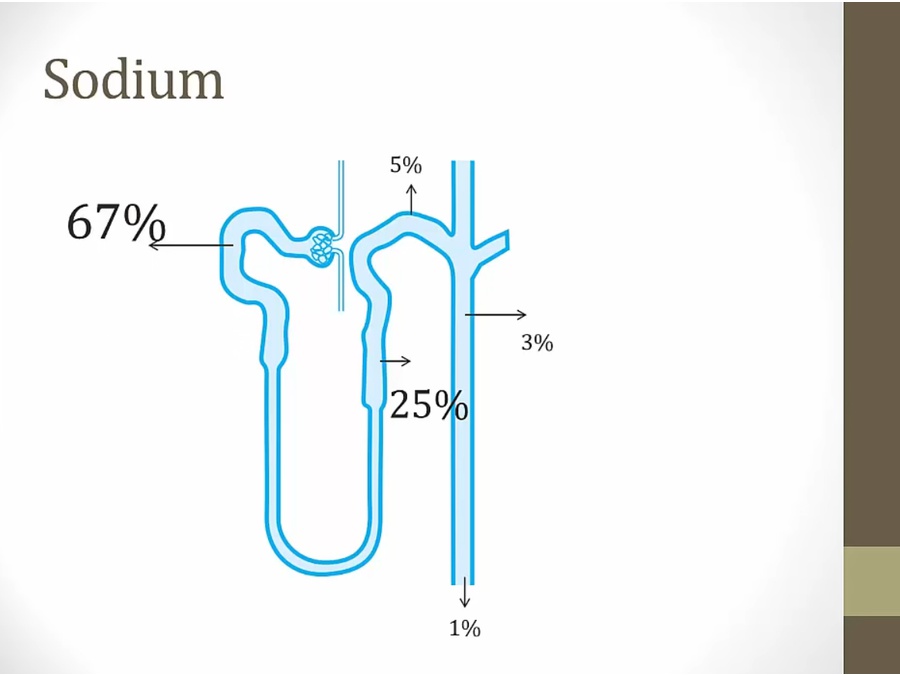
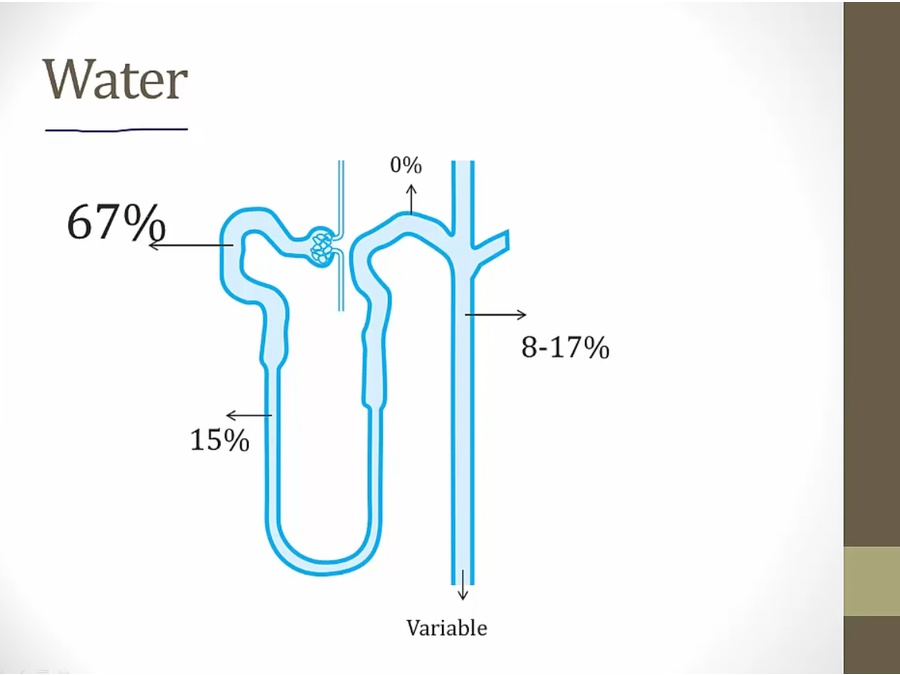

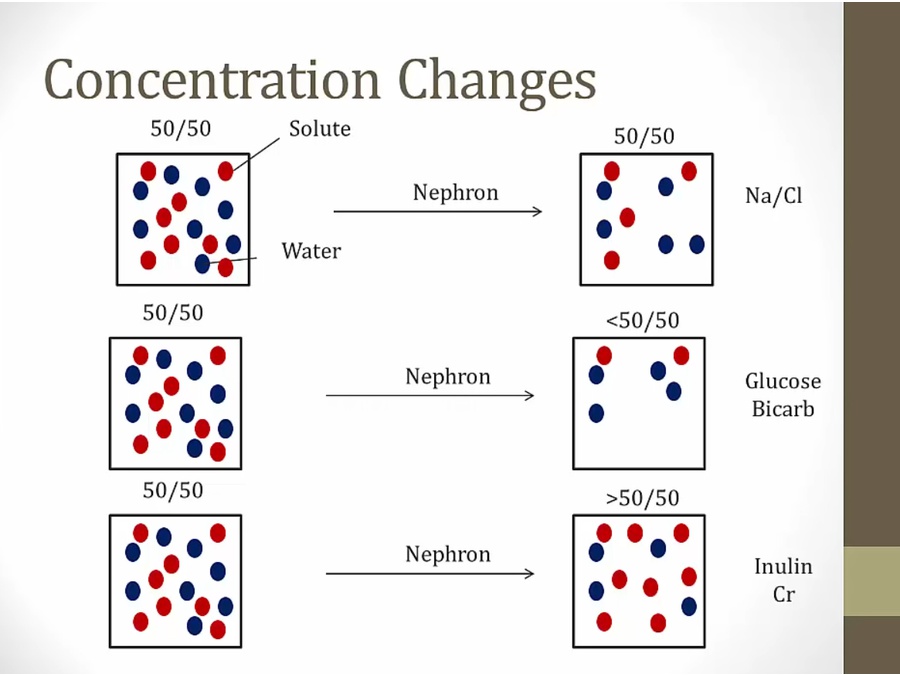
- middle: pull more solute out than water, result = more dilute
- bottom: pull water more than solute
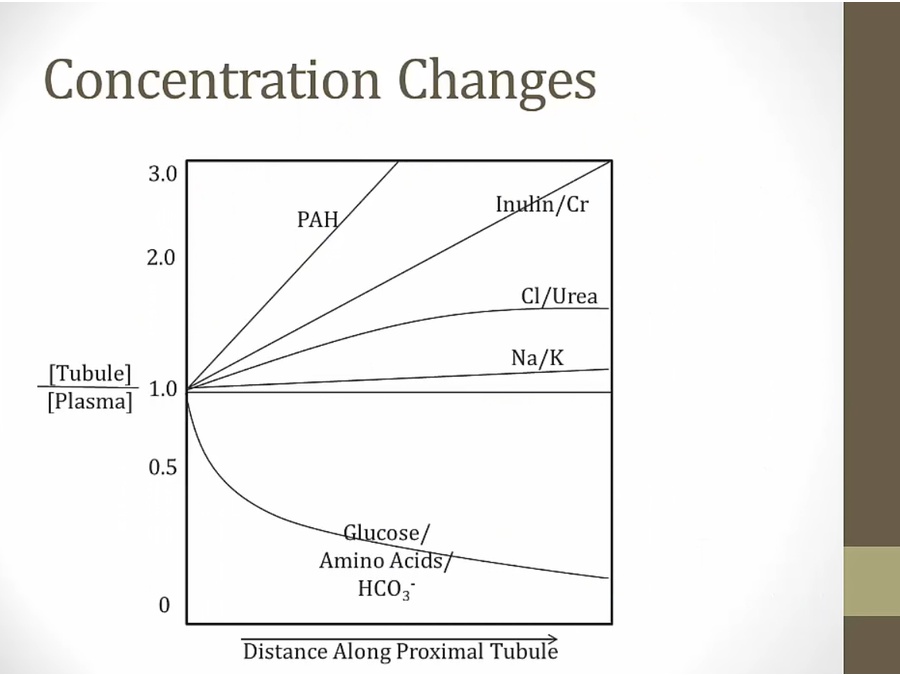
- inulin/Cr: not absorbed, concentration rises
- Cl/urea/Na/K: not really changed, concentration a little higher
- glucose/aa/bicarb: absorbed, concentration decreases
- PAH: secreted
Links to this note















































